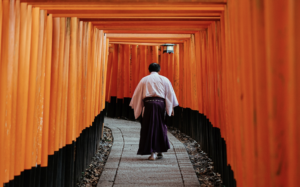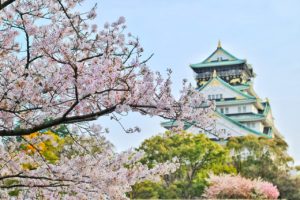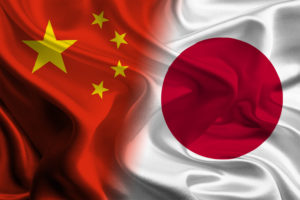Living in Japan gives you a special perspective on life. Expats in Japan know the feeling. But, even visitors can get a taste of Japanese culture. And all of us can definitely learn from the wisdom of everyday Japanese life. Here are the most important cultural features of Japan. Some are well-known, some are more subtle, but all are definitely fascinating.
Things to Learn from Japanese Culture
If you’re thinking about visiting Japan, you’re likely wondering what to learn from Japanese culture. While the Japanese language is likely the first thing you’ll learn, there are several other things you’ll be able to experience for yourself during your visit. The following 10 lessons are something we can all learn from Japanese culture:
1. Show Respect Whenever Possible
Japanese culture is built upon respecting one another. Bowing is used to communicate this respect and is an integral part of Japanese culture. The Japanese use bowing in conversations with one another to show that they truly respect the other person. While some people may assume that bowing is something done infrequently, this couldn’t be further from the truth.
Bowing happens quite often in every conversation. It becomes almost second nature as you communicate with native Japanese speakers. The level of respect that this custom communicates is something that American culture is definitely lacking.

2. The Most Important Words are Thank You, Sorry, and It’s Okay
If you don’t know a lot of Japanese prior to relocating or visiting, there are only three words that you really need to know. As you navigate your way through Japan, you’ll find that “thank you”, “sorry”, and “it’s okay” are the most common phrases you will hear and say in conversation.
- Thank you – ありがとう (Arigatou) – “Thank you” is often said for the simplest things. This phrase is quite common but really means a lot in Japanese culture.
- Sorry – ごめんなさい (Gomen nasai) – You will hear many people apologizing during your time in Japan. This “sorry” is often a polite way of saying “excuse me”.
- It’s okay – 大丈夫です (Daijobu desu) – You’ll often say “it’s okay” in response to any apologies that you may hear.
3. Certain Japanese Phrases Don’t Translate
There are some Japanese phrases that can’t really translate to English. This is because there aren’t really any similar meanings in the English language. Some of these phrases are:
- O Tsukaresama Desu (I exalt you as you are in a state of exhaustion) – This phrase is usually reserved for hard-working individuals that are often overlooked by society. Custodians, janitors, construction workers, and the like are all deserving of more respect and praise than we give them.
- Yoroshiku Onegaishiamasu (I ask that you will treat me well as we start our relationship) – This is often said when two people first meet each other. It is a phrase to communicate the commitment between both people.
4. Japanese People Really Give 110%
In American culture, people are generally unfriendly. When asked for directions, they’ll usually give a few instructions here and there, leaving the lost individual left to fend for themselves. However, in Japanese culture, most people will go out of their way to help someone, especially if they are lost or in need of directions. On many occasions, someone will physically go with you to your destination to ensure that you don’t get lost along the way.
5. You’ll Understand the Beauty of Nature by Living in Japan
If living in Japan has taught me anything it’s that beauty is all around us. If you didn’t have much appreciation for nature already, after you go to Japan, you’ll gain a whole new love for it. Nature is something that is very sacred and precious to Japanese culture. One of the best examples of this is the practice of Hanami. This occurs during the time of year when cherry trees bloom. Everyone gathers under the cherry blossoms to partake in a picnic. As you roam the parks during this season, you’ll see so many people that it is often hard to walk in most areas.
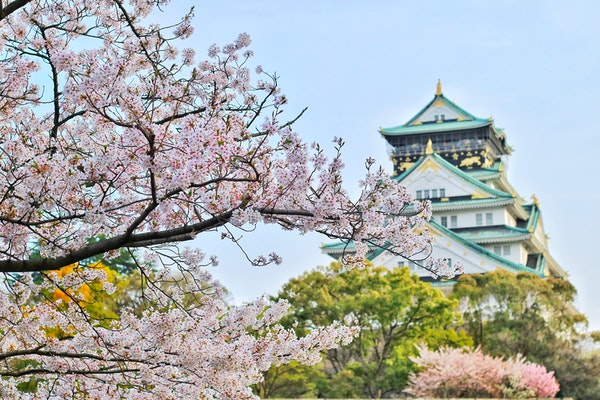
6. Cleanliness Is Your New Priority When You Live in Japan
Most people associate Japanese culture with cleanliness. This is because the Japanese are taught at a very early age to respect their communities and keep things clean. This isn’t really the case in America. One visit to any of America’s busiest cities will reveal just how little people care about the environment and cleanliness.
In contrast, visiting Japanese cities, you’ll see that the streets are spotless. Even in the most packed areas of these cities, you’d be hard-pressed to find any dirt or trash. And if you’re living in Japan, having such a clean space is something you get to appreciate daily.
7. You’ll Want to Take Going Green to the Next Level
You’ll see that Japanese culture puts a very big emphasis on going green. It may take you a few attempts to understand what goes where when throwing away your garbage. If you don’t recycle in the proper way, the garbage men will reject your trash and leave a note telling you what to do instead.
8. Let Go of What You Cannot Control
“Sho ga nai” is another common Japanese phrase. It basically translates to “let go of what you cannot control”. Many of us spend most of our days worrying about things that are really beyond our control. If we were to live by the phrase, we would put all of that nervous energy into working towards what we can change in our lives and accepting everything that we can’t.
9. Set Aside Time for Your Family
Japanese culture puts a huge emphasis on spending time with your family. Whenever there is an important holiday like New Years’, the Japanese gather together with their loved ones to spend quality time together. This is something that American culture could stand to benefit from. Whether those family members are our closest friends or actual relatives, we should all be setting aside time to spend with those we cherish.
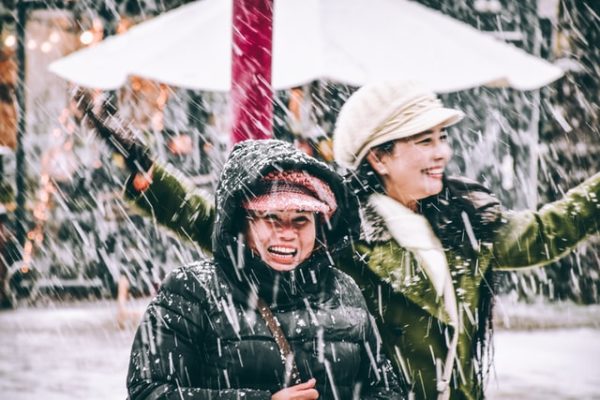
10. Always Find a Reason to Celebrate
As you get used to Japanese culture, you’ll see that Japan has several different cultural celebrations during the year. Many of these celebrations are complete with dancing, vendors, music, fireworks, and food. These celebrations bring the whole community together in ways that most American holidays do not.
As you prepare for your trip to Japan, do your best to take part in all aspects of Japanese culture. Depending on what you pick up while you’re there, you may even bring the most prominent customs back home with you.
Learn Japanese Before Living in Japan
The one thing that you’ll definitely experience in Japan is the Japanese language. So, if you plan on living in Japan, you should definitely learn Japanese. And the easiest way to learn Japanese is with OptiLingo.
OptiLingo is an app that teaches you the most common Japanese words and phrases. So, you’ll learn how to talk to Japanese locals very quickly. By skipping the dreaded vocabulary studies, you can focus more on sharpening other Japanese skills. Achieve Japanese success by downloading OptiLingo!



